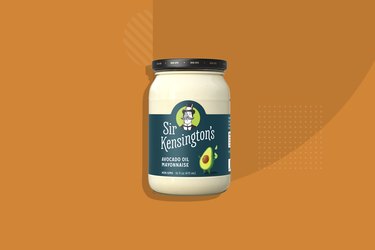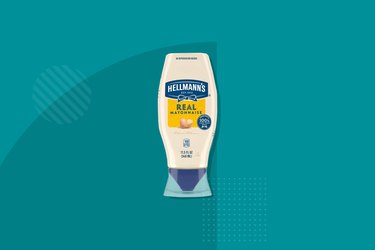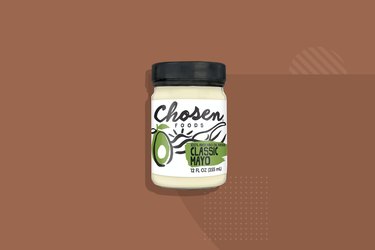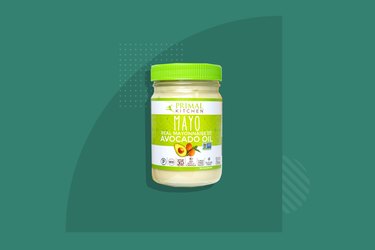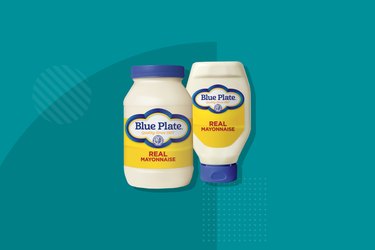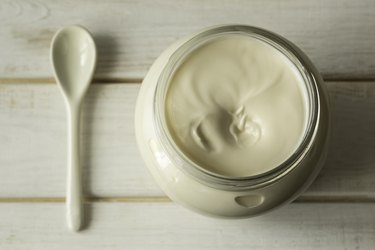
As a condiment on your sandwich, a salad dressing or french fry dip, mayo is probably one of the most versatile spreads out there. And if gluten is your main concern, you'll be happy to learn mayo is generally gluten-free.
Mayo is typically made of a few simple ingredients, none of which contain any gluten-based grains. Nevertheless, stay on the lookout for potential gluten contaminants before you add mayo to your favorite sandwich.
Video of the Day
Video of the Day
Is Mayo Gluten-Free?
Gluten is a protein found in wheat, rye and barley and these grains' derivatives, according to the Celiac Disease Foundation. While there are plenty of mayos that are free of wheat, rye or barley (making them gluten-free), you can't assume the mayo you're eating is safe.
For the most part, mayo is made of oil, egg yolk and vinegar. While eggs and oil are OK on a gluten-free diet, vinegar can be a risky ingredient.
Despite that it's made usually of gluten grains, pure vinegar is gluten-free due to the distillation process, according to Beyond Celiac. Flavored vinegars, though, may contain malt, a barley-derived ingredient that's not gluten-free.
How to Find Gluten-Free Mayonnaise
Even if the mayo you're buying contains no gluten ingredients, it may still be at risk for cross-contamination, which occurs when gluten foods come in contact with other ingredients either through manufacturing or preparation, according to the Celiac Disease Foundation. This can pose a risk for those with gluten intolerance.
When buying gluten-free mayo, look for a "Gluten-Free" label on the front package of the product. This label is regulated by the Food & Drug Administration and signifies that the food you're eating has less than 20 parts per million (ppm) of gluten, which is generally safe for people with celiac to eat.
If you want even more security, buy foods that are labeled "Certified Gluten-Free" and are vetted by trusted third parties, like the Gluten-Free Certification Organization (GFCO). The GFCO has especially strict standards, certifying foods that have only 10 ppm of gluten or less, according to the organization's website.
If the mayo doesn't have a Gluten-Free label, take time to carefully read the ingredient list of any bottle you decide to buy. Look out for any gluten-based foods (including malt vinegar) and don't forget to check the allergen listing for wheat or gluten, too.
Gluten-Free Mayo Brands
1. Sir Kensington's Avocado Oil Mayonnaise
Buy it: Amazon.com; Price: $14.95
2. Hellmann's Real Mayonnaise
Buy it: Amazon.com; Price: $35.76 per pack of 12
3. Chosen Foods Classic Avocado Oil Mayo
Buy it: Amazon.com; Price: $8.49
4. Primal Kitchen Mayo With Avocado
Buy it: Amazon.com; Price: $24.72 for 2 jars
5. Blue Plate Real Mayonnaise
Buy it: Amazon.com; Price: $4.25 per jar
Is Miracle Whip Gluten-Free?
Some prefer to use Miracle Whip over mayo, as it's lower in fat and calories, according to the Kraft Heinz website. Although this substitute makes a great lower-calorie alternative, it's not necessarily gluten-free.
Miracle Whip isn't made with any gluten ingredients but the product also lacks a gluten-free label, which likely means it's produced in a factory that also handles wheat, rye or barley. So, there is a chance Miracle Whip can be exposed to cross-contact during production therefore potentially making it unsafe on a gluten-free diet.
